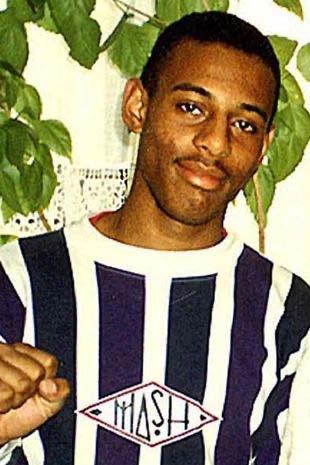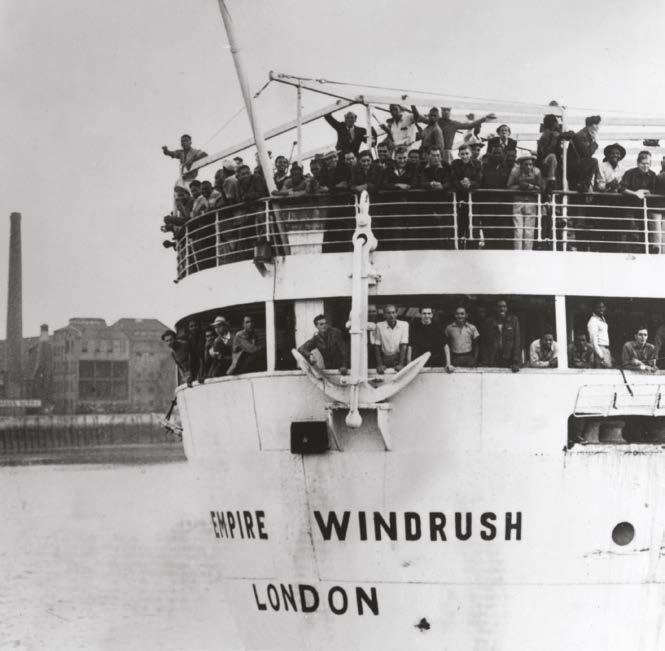
3 minute read
Let’s come together as one
RICHARD REDDIE
is an author, and Director of Justice and Inclusion - Churches Together in Britain and Ireland
Advertisement
This year has witnessed a number of high-profile anniversaries, such as Her Majesty the Queen’s Platinum Jubilee and the 25th anniversary of Britain’s handover of Hong Kong to China. However, from a church perspective, one important anniversary that has gone under the radar has been the 80th anniversary of the establishment of the British Council of Churches (BCC). The BCC, which was instigated by Archbishop William Temple in 1942, had, among other things, the remit of ‘… facilitating common evangelical action among the churches, promoting international friendship and stimulating a sense of social responsibility’. Such a church body would now be described as ‘ecumenical’, a term that has become synonymous with the muchvaunted ideal of promoting Christian unity.
The founding BCC denominations at the time included: the Church of England; the Episcopalians of Scotland, Ireland and Wales; the English Presbyterians; the Presbyterian Church of Scotland; the Methodists; the Congregationalists; the Churches of Christ; the Baptists; the Quakers; the Unitarians, and the Salvation Army. The Greek Orthodox Church became a member in 1965, and the BCC later became the Council of Churches for Britain and Ireland (CCBI) to include the Catholic Church. Today, the BCC/CCBI is known as Churches Together in Britain and Ireland or CTBI.
The BCC’s formation took place in the same decade as the arrival of the SS Empire Windrush, and it soon became engaged in what was known as ‘race’ or ‘community’ relations work to address prejudice and inequality. The organisation was aware that Britain at that time was a deeply racist country with none of the legislation that safeguarded and protected the UK’s largely Black and Asian communities from the overt and pernicious racism in employment, housing, health and the criminal justice system. It later established the groundbreaking Community and Race Relations Unit (CRRU) in 1971 to help tackle some of the structural issues linked to racism and the struggle for justice in society.
The BCC was also keen to connect with ‘West Indian’ churches - as they were known at the time – that were established by the ‘Windrush’ Caribbean arrivers. It was keen to not only know more about these congregations, but to engage with them in ways that would see them join what was a largely White, parachurch grouping. For instance, it commissioned the then vicar and academic, Dr Clifford Hill, to explore this emerging religious phenomenon. His findings appeared in a 1971 publication, Black Churches: West Indian and African Sects in Britain. While this book has an anachronistic, unhelpful title, it was one of the first pieces of research into BMCs (Black-majority churches) in Britain.
In October 1979, the BCC organised the groundbreaking ‘Unity in Love: a Celebration’ church service at the iconic St Paul’s Cathedral in London, which aimed to celebrate the diversity of British Christianity by bringing together members of the BCC’s historic denominations and African-Caribbean and African-heritage congregations. The music, choirs, singers, prayers and preaching that day reflected those in attendance.
In the 1990s, the CRRU was replaced by the Churches Commission for Racial Justice (CCRJ), which took a more dynamic approach to addressing issues of injustice in Church and society. The CCRJ would subsequently initiate Racial Justice Sunday after the racist killing of Black teenager, Stephen Lawrence, in London in April 1993. It also established a Racial Justice Fund that helped community groups and churches to tackle racism and immigration matters, such as contesting the deportations of those seeking refuge in this country.
Interestingly, the first Black-led churches to join the BCC were not of Caribbean heritage, but indigenous Christian congregations from continental Africa. These days, the BMCs are an integral part of the ecumenical movement in Britain and Ireland, and have added some much-needed spiritual pep to the grouping. What is more, as Britain and Ireland become more diverse demographically, the corresponding BMC presence is changing the Christian landscape.
For many years, Rev Nezlin Sterling, from the New Testament Assembly, was a CTBI President, while Patricia White, from the Baptist Union of Great Britain, remains a key CTBI Trustee. However, while the BMCs now have a place at the ecumenical table, the challenge is ensuring that they are given the proverbial microphone so they can ‘speak and be heard’. It can be argued that the 80th anniversary of the BCC is an important opportunity to assess the ecumenical journey, and the role the BMCs have played in this.


Stephen Lawrence










